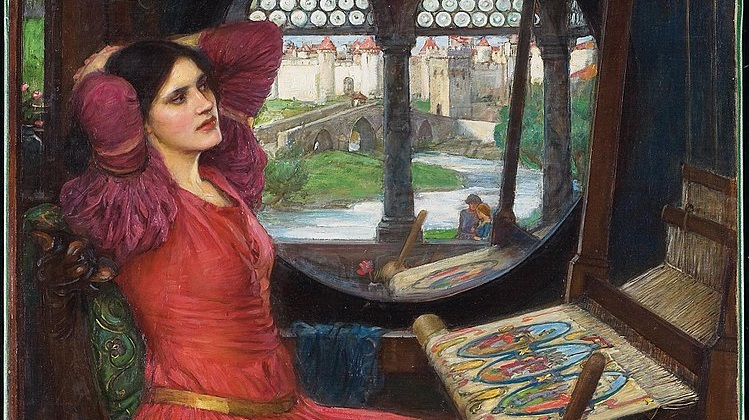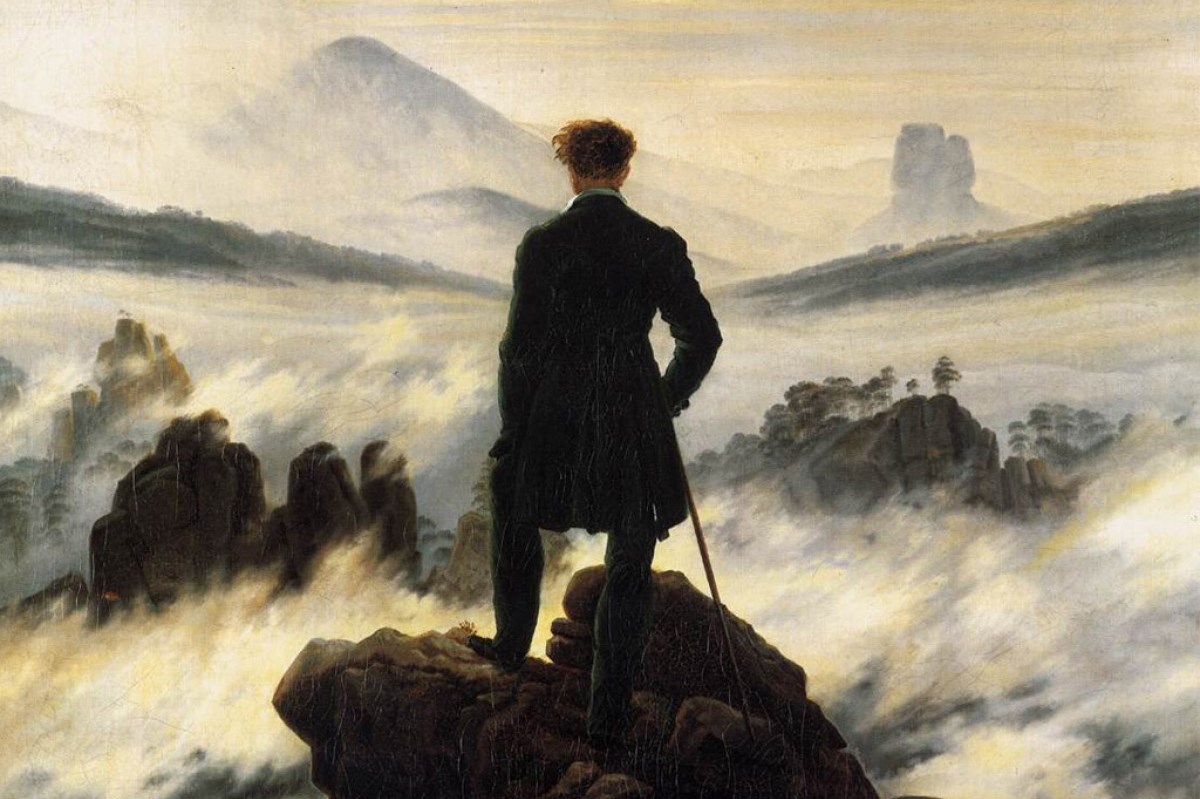Not how we’re seen but what we do
determines beauty’s stride,
for seeds of virtue catered to
are planted deep inside.
Not what we see but how perceived
in nature’s many sides
determines how the world’s received
as force of will collides.
Not when we do but why we strive
to bring all things allied,
for beauty is a word alive,
the quest for truth applied.
Shari Jo LeKane lives in St. Louis, Missouri, writes poetry, prose and articles, and specializes in literary criticism, creative writing, Spanish Language and culture, business and community development, educational and leadership development, non-profit matters, disability, elderly care and advocacy. She has a B.A. in English, Spanish, an M.A. in Spanish from Saint Louis University in Madrid and St. Louis, and additional certifications. She teaches Spanish at an HBCU in St. Louis, Missouri, and Creative Writing and Poetry. Shari’s poetry has been published in literary magazines worldwide. She considers herself a modern formalist, addressing contemporary issues in poetic verse with a stylized language.

















Beauty is a favourite topic of mine and this is very beautiful – thank you, Shari Jo – really enjoyed reading this poem.
Thank you very much, James Sale. I am a fond admirer of all of your fine work, and I appreciate your comments! Best wishes. Shari
Shari Jo,
Your poem is well-written. My comment, however, concerns its content.
Your closing words,
for beauty is a word alive,
the quest for truth applied.
could well form the thesis for a PhD in philosophy. Indeed, it may succinctly and profoundly express the foundational principle for the Arts in general and the SCP in particular.
It is sad to see how truth and beauty are now relegated to (and celebrated in) what was in previous generations considered to be decadent, degenerate and the mundane (e.g. “Piss Christ”). I once showed a series of pictures of various things, including garbage dumps, the Cathedral of Chartres, power lines, dead animals, the Pieta, etc. to a group of college students and asked them to identify the images they found to be beautiful. At first they did not understand the question. After I gave them an objective definition of the word “beauty” they asked to see the pictures a second time. ALL of them offered the same response: “I would say that every picture is beautiful in some way; it would depend on who was looking at it and what they saw in it.”
Bach or Burt Bacharach? Rembrandt or rusty nails? All equally beautiful.
Apparently Ray Stevens is the philosopher of our age: “Everything is beautiful . . . in its own way.”
If everything is beautiful then nothing is beautiful. If everything is true then nothing is true. Such is the world we live in these days. Your poem aims for something higher. Thank you for inspiring us to aim for it, too.
James – what a profound comment. It certainly provoked some personal reflection.
Dear James A. Tweedie,
Thank you for your comments and brilliant discussion on truth and beauty: a topic of great interest that continues to evolve in theory and philosophical interpretation.
Allow me to share an article from the Stanford Encyclopedia of Philosophy that defines the (Western) history of Beauty as both subjective and objective qualities, and the philosophical conceptions of beauty (Classical, Idealist, Love and Longing, Hedonist, and Use and Uselessness): https://plato.stanford.edu/entries/beauty/
Couple this with the Transcendentalist (historical) pursuit for truth through the sciences, arts and religion: https://en.wikipedia.org/wiki/Transcendentals
There is no easy answer here other than to remain true to the pursuit of the beauty in truth and the truth in beauty, whatever that means in any space, place and time.
Hi Sheri Jo —
I like your poem and the concept. One item I will point out, which might just be me, but when I read the last stanza, I was thrown off by the half-rhyme/alliteration “allied” and “alive” and thought you had changed the rhyme scheme. When I looked closer, I see that was not your intent, but it threw off my first reading.
James: Re: “If everything is beautiful then nothing is beautiful. If everything is true then nothing is true.” What you say is true ( 🙂 ) and important. So, you have spurred me to comment on this.
My philosophical hero is Ludwig Wittgenstein; in a bizarre twist of fate, Wittgenstein became the poster child for weak minded and poorly read post modernists. I’ve queried many of these folks, and although they all quote Wittgenstein, almost none of them have actually /read/ Wittgenstein.
So, I offer to you the following quote:
“Hegel seems to me to be always wanting to say that things which look different are really the same. Whereas my interest is in showing that things which look the same are really different. I was thinking of using as a motto for my book a quotation from King Lear: ‘I’ll teach you differences’.
― Ludwig Wittgenstein
I enjoyed this discussion of same, different; beauty and no beauty. I hope it continues.
Ms. Shari Jo, you gave me much to consider by offering your beautiful poem. Thank you
Dear Carole Mertz,
Thank you so much, you are very kind.
Shari
A very enjoyable poem, and thank you.
Thank you very kindly, David Hollywood!
Best wishes, Shari
An interesting theme and well written. Thank you.
Thank you so much, David Paul Behrens!
Shari
Inspiring poem reminding that Truth is the only Beauty.
Dear Joan,
I agree with you entirely!
Shari
Shari, Hello.
1. If we strip down the sentence that is the second stanza (S2) to just subject and verb, we have:
Not what we see but how perceived… determines…
The phrase “how perceived” as a subject strikes me as a little awkward. Here is an alternative:
Not what we see, but what’s perceived… determines…
2. It seems to me that the sentence that is S3L1&2 should have a verb in it or following it. S1 and S2 have the verb “determines.” I know that not every line in a poem needs to have a verb, but this is how it strikes me.
3. In S3L2, something in me wants to change “allied” to “aligned.” My Webster’s New World College Dictionary says that “ally” means “to unite or associate for a specific purpose” and that “align” means “to bring into proper coordination.” S3 works as is, but I wonder if “align” might be a slightly better fit. If you wanted to experiment, here are two ideas:
Not when we do, but why we strive
to make all things aligned,
for beauty is a word alive,
the quest for truth defined.
Not when we do, but why we strive
to make all things align,
for beauty is a word alive,
the quest for truth divine.
Just a thought.
4. I like the consonance in lines 8, 9 & 10, i.e., the series of L’s and W’s.
5. I am very fond of the ballad form of the poem, i.e., the alternating 8- & 6-syllable lines. It reminds me of “Casey at the Bat” by Ernest Lawrence Thayer, a poem I read in my youth.
6. I enjoyed the poem and appreciate its message. Thank you for sharing it with us.
Dear Mark Stone,
Thank you for your comments.
Dear Shari,
There’s definitely some originality here. Nice way to take up a universal theme and do something quite original with it!
As a suggestion, it seems like “how perceived” sounds a bit forced:
Not what we see but how perceived in nature’s many sides
The line looks more contrived, because now the reader’s attention is directed to the fact that you’re trying to stay within the meter and rhyme scheme and that’s why you wrote something like “but how perceived.”
“Not what we see, but what’s conceived
In nature’s many strides […]
Perhaps?
I thought it was worth pointing that out because it’s definitely an original poem.
I’d be interested to see what other stuff you have. Feel free to submit something to thechainedmuse.com.
Dear Chained Muse,
Thank you for your comments. Perception is critical to the entire line, versus conception which gives it an entirely different meaning.
As Mr. Stone has correctly pointed out, Ms. LeKane-Yentumi has used the ballad form for her abstract brief. Though I could be wrong, I imagine it is her use of abstractions that led Mr. Shaffer to thoughts of Wittgenstein. One of the more obvious and simpler places here @ SCP where I use Wittgenstein, is in the frequent ordering and numbering of my comments; but Wittgenstein’s life is itself a study in philosophic excellence, even when it is frustrating, con-fusing, or breathtaking in its span. What Mr. Shaffer’s own comment triggered in my mind was an unpublished bilding of my younger years of many decades ago.
Für Ludwig
by Erisbawdle Cue.
Struggling with his mind in far away Britain,
far away, at least, then, from crumbling Austria
and all that was crumbling with it: music, vision,
the cosmopolitan culture of Vienna,
the dark rotting molds of the nineteenth century,
the heights of medicine, and the perennial
abuses of government by the monarchy;
yes, far from all that, pounding the chords of his mind
out an into a philosophic symphony,
hammering something out of the milky-thick brine
of his brain, clamoring with a constant rhythm,
as though he was on to something big—Wittgenstein!
Dear Erisbawdle Cue,
Thank you for sharing your enlightening musings on Fur Ludwig.